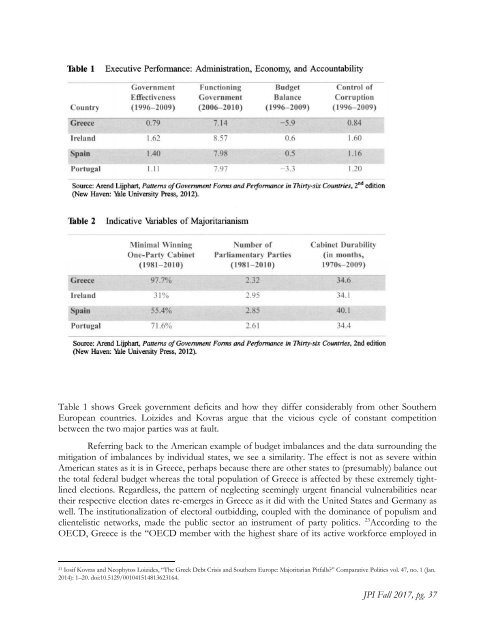JPI Spring 2018
Create successful ePaper yourself
Turn your PDF publications into a flip-book with our unique Google optimized e-Paper software.
Table 1 shows Greek government deficits and how they differ considerably from other Southern<br />
European countries. Loizides and Kovras argue that the vicious cycle of constant competition<br />
between the two major parties was at fault.<br />
Referring back to the American example of budget imbalances and the data surrounding the<br />
mitigation of imbalances by individual states, we see a similarity. The effect is not as severe within<br />
American states as it is in Greece, perhaps because there are other states to (presumably) balance out<br />
the total federal budget whereas the total population of Greece is affected by these extremely tightlined<br />
elections. Regardless, the pattern of neglecting seemingly urgent financial vulnerabilities near<br />
their respective election dates re-emerges in Greece as it did with the United States and Germany as<br />
well. The institutionalization of electoral outbidding, coupled with the dominance of populism and<br />
clientelistic networks, made the public sector an instrument of party politics. 23 According to the<br />
OECD, Greece is the “OECD member with the highest share of its active workforce employed in<br />
23<br />
Iosif Kovras and Neophytos Loizides, “The Greek Debt Crisis and Southern Europe: Majoritarian Pitfalls?” Comparative Politics vol. 47, no. 1 (Jan.<br />
2014): 1–20. doi:10.5129/001041514813623164.<br />
<strong>JPI</strong> Fall 2017, pg. 37
















